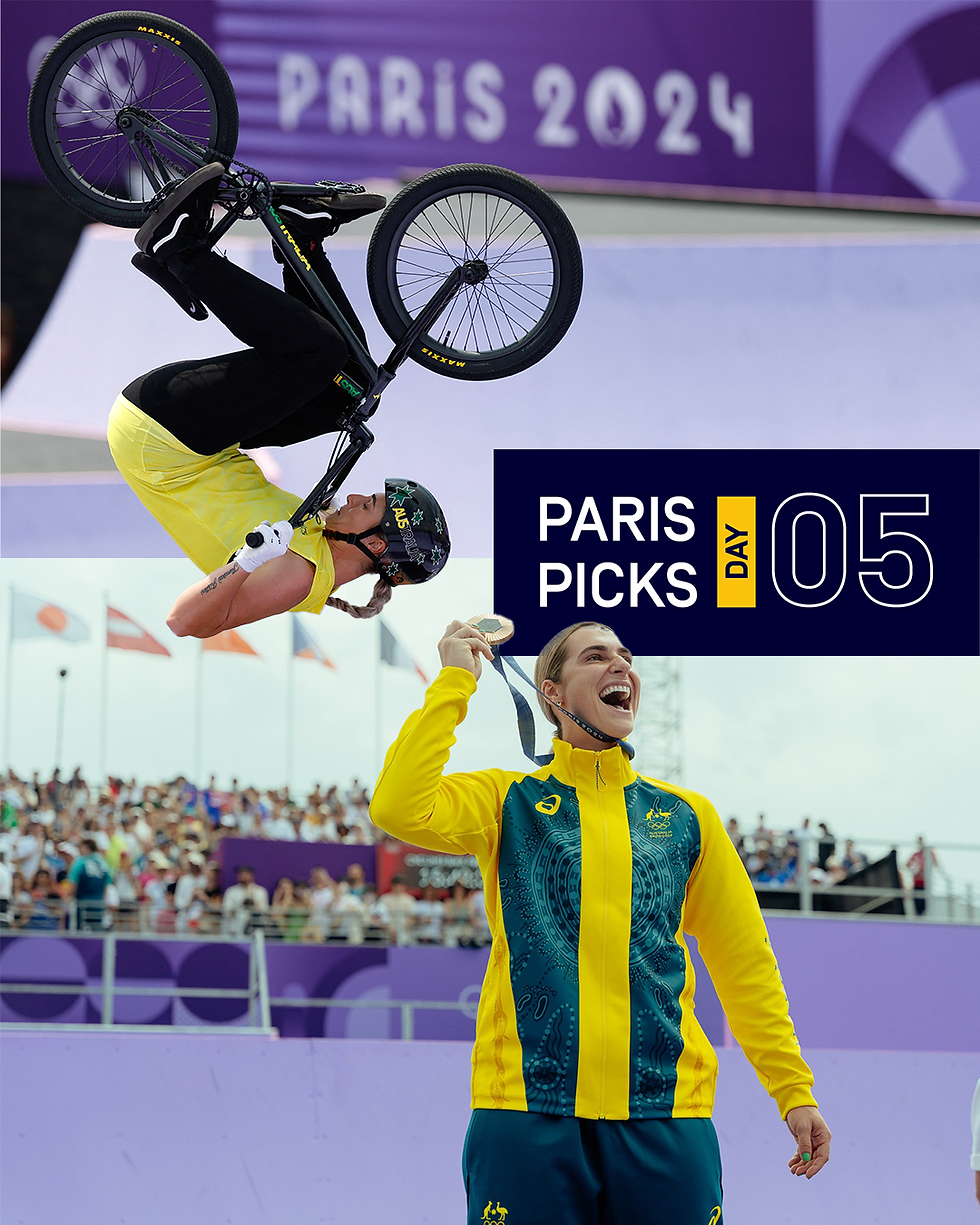Aussie Women Dominating at the 2024 Olympic Games Push for recognition in Paris and Beyond
- Simone Wearne

- Aug 1, 2024
- 4 min read
Updated: Aug 26, 2024
By Simone Wearne
“It’s like once every four years we get to forget how people usually categorise women’s sport.”
This is a line from a message I received this morning as I prepared for my typical day at work. I woke up as most Aussies have been, at least those who haven’t been able to force their eyes open for 3am viewings of Aussies in action over in Paris.

X post courtesy of The Project, published 1st August.
I was checking my socials for the overnight Olympic results, listening to the morning news on the radio in my car, and then reading through articles posted online highlighting Olympic brilliance and stories of domination, all as I sipped my morning coffee.
Aussie Female Domination in Paris
Whilst the media have been presenting some great stories of our Olympic heroes, one important area that has not featured in my news feed yet is that of the female Aussies dominating in Paris.
As it stands on August 1st, Australia have amassed 16 medals at the 2024 Olympic Games, 10 of them by female athletes.
Mollie O'Callaghan and Ariarne Titmus on the podium. Courtesy - Imago 2024.
Strikingly, all 7 of our gold medals have been won by females. It’s the highest percentage of female won gold medals amongst the top five countries in the current official medal tally, according to Olympics.com.
Official Olympic medal tally showing the top five countries @ 1st August. Courtesy - Olympics.com
Yes, I know what some of you are thinking. We’re hearing all about Jess Fox and her amazing run of two gold medals in canoe slalom events. We’re tipping our caps to Arnie who has once again dominated her highly touted US rivals in the pool, and we’re reveling in the success of 26-year-old Natalya Diehm who, overcoming five potentially career-ending ACL injuries, overnight won Olympic bronze in the BMX freestyle final.
Natalya Diehm with her bronze medal. Courtesy - Australian Sports Commission.
But what we aren’t hearing about is the power of Australia’s sportswomen as women. A morning headline in the Guardian today read "Golden generation fizzes out as Matildas’ Olympic collapse exposes wider frailties". It didn’t mention the fact that a team ranked 12th in the world will finish their Olympic campaign in 9th place. It failed to mention the fact that Australia has no male team competing at all in the Games after they failed to qualify. The third time in the last four Olympics might I add.
The female athletes are our darlings until they lose, but the men’s stories are painted as being more interesting to the media all the time.
At a time when women’s sport is on the rise, and the commercial realities of female sporting powerhouse athletes and teams has never been more significant, there is still a missing link as we look to the media who report on our superstars.
Post-Olympic Ghosting of Female Athletes in the Media
There is no doubt that during the Olympics, women’s sports receive an unparalleled level of attention. The athletes who claim a podium finish are often met with widespread acclaim, and their respective stories of triumph and perseverance become headlines around the world.
Media coverage during the few weeks of the Olympic program is extensive, with all athletes, female and male, offered a unique opportunity to showcase their skills globally, put on a pedestal like they never have been before.
But how come these stories are few and far between when Olympic podiums aren’t in the global spotlight? Well, for the females at least.
Sure, we are hearing more and more stories of ‘women in sport’ as superstars like Caitlin Clarke and Angel Reese drive viewership through the roof in the WNBA. There is much to be excited about.
The Caitlin Clark effect has had a significant increase on WNBA viewership worldwide. Courtesy - news.com.au
Back to the Actual Point
As the closing ceremony draws nearer, and the Games come to a close, so often does the media spotlight on the women that were – for two weeks – celebrated on the grandest stage of all, for the world to see.
Many of the remarkable female athletes at the peak of their powers will likely fade into the background. Not because of their lack of skill, their lack of commitment to their sport – but purely because the media continue to choose to report on other stories that they deem more ‘interesting’.
With a lack of visibility, a genuine lack of sustained coverage, there continues to be missed opportunities for female athletes. Opportunities for sponsorship, opportunities for professional growth, and opportunities for people around the world to genuinely reconsider the stereotypical way in which sport has become ingrained in the media – through the lens of male athletes.
Ongoing Challenges…and Opportunity
The development of women’s sport, and the opportunity to break the traditional cycle of imbalance when it comes to the presentation of our female sporting heroes in the media will rely on a shift of focus beyond Olympic competition.
Breaking down barriers and elevating females in the sporting landscape, what great stories that the media can craft to engage with more audiences, garner more interest and potentially sell more papers. Female athletes are inspiring the next generation and opening the door to a world where women’s sport simply becomes sport.
A world where we champion women’s sport all year round is a world where sporting culture can be transformed for the better.
Promotion of women’s sport beyond the Olympic cycle can not only help bridge the gap and imbalance that exists when it comes to equity in the sporting world, but it has the chance to change the underlying views of society as a whole. It’s the change that needs to happen.








Comments